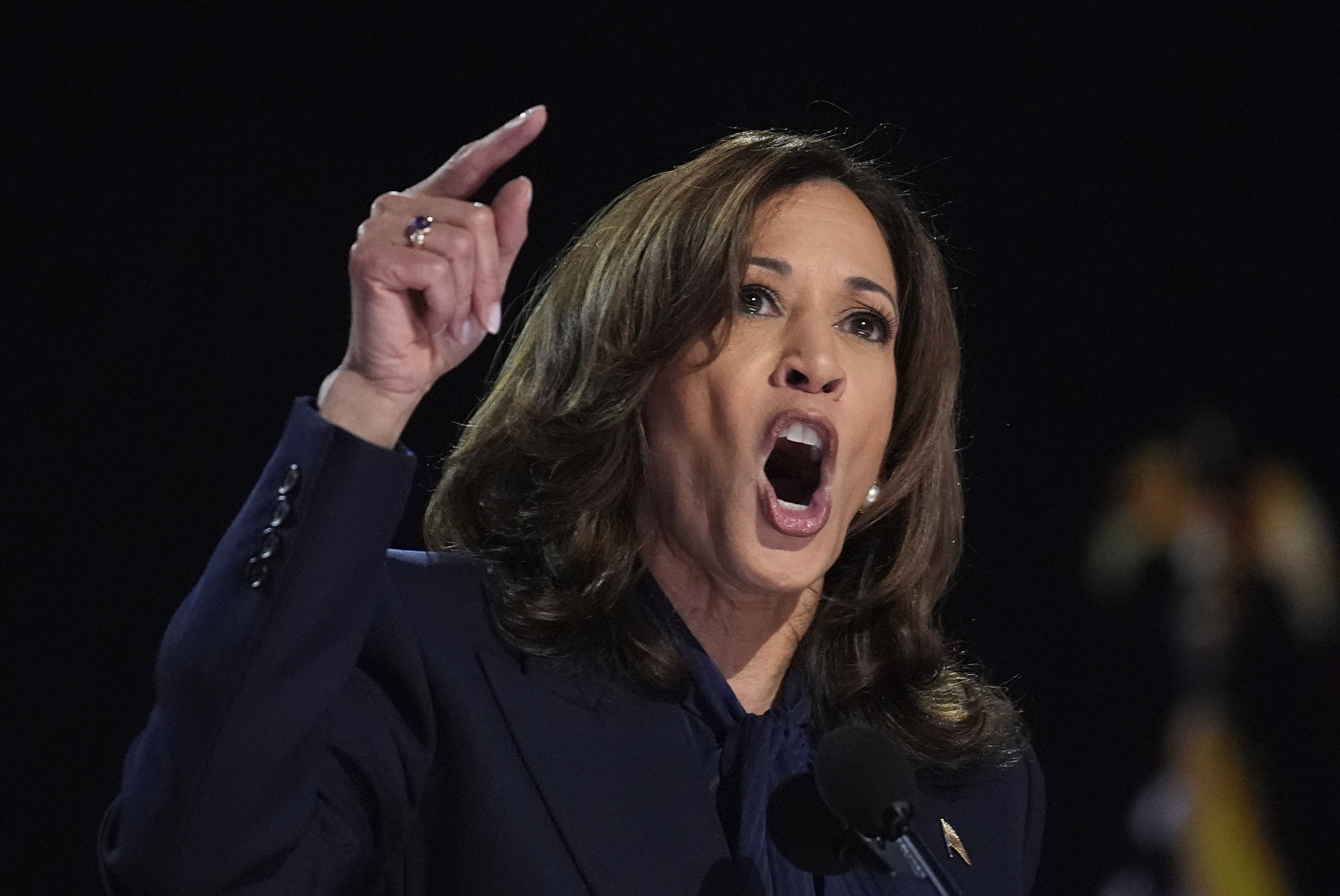Over and over, from the massive stage in the electric convention hall, the Democrats this week predicted that Kamala Harris would defeat Donald Trump. They described her as a historic figure, the embodiment of hope, "the president of joy."
But amid the extraordinary optimism, former first lady Michelle Obama offered a sober warning: "No matter how good we feel tonight or tomorrow or the next day, this is going to be an uphill battle."
The word of caution was quickly drowned out by the excitement that overwhelmed the standing-room-only 17,000-person arena in downtown Chicago. But as activists, operatives and party leaders leave the Democratic National Convention and fan out across America, a stark reality exists: The real test for Harris has only just begun.
More than a month after President Joe Biden stepped aside and endorsed her, Harris has barely started to outline detailed plans she would pursue as president to address the nation's biggest challenges — immigration, crime and climate change, among them. She has yet to sit down for even one comprehensive media interview to face difficult questions about her flip-flops on policy in recent years, her leadership style and the focus on race and gender that looms over her historic candidacy.
"We can't put our heads in the sand. She's a Black woman. The bar is going to be higher for everything," said John Anzalone, a pollster who has served the last three Democratic presidential nominees. "And guess what? That means, even mistakes. Mistakes are going to be magnified."
At the same time, Harris' allies acknowledge she remains largely undefined in the minds of many voters, having operated in Biden's shadow for much the last four years. The relative anonymity offers both opportunity and risk.
"The bad thing about vice presidents is that nobody knows who you are. The good thing about vice presidents is nobody knows who you are," said David Axelrod, who served as former President Barack Obama's chief strategist.
Harris now has just over two weeks to prepare for what could be her only presidential debate against Trump, a Sept. 10 showdown that could dramatically shift the direction of the race. The first presidential debate, of course, effectively forced Biden to drop out of the race.
For now, Harris' team feels no urgency to roll out a comprehensive policy platform or sit for media interviews that might jeopardize the positive vibes that have defined her nascent campaign and produced a flood of campaign donations and a growing army of swing-state volunteers.
During a series of meetings throughout the convention week, her advisers cast her policy agenda as a continuation and expansion on Biden's first term achievements, particularly on economic matters, even if it may look and sound different in some cases.
Harris has notably dropped her opposition to fracking and her support for Medicare for All, which were defining features of her 2019 presidential campaign. Her aides insist her values remain the same, but she's embraced more centrist policies out of pragmatism.
Meanwhile, Harris' allies believe it's only a matter of time before Trump settles on an effective line of attack.
In recent days, the Republican former president has adopted a kitchen-sink approach against Harris that includes attacks about her racial identity, her laugh, her record as vice president and her history as a "San Francisco liberal."
"He'll figure out how to get a message and land a political punch," Pennsylvania Gov. Josh Shapiro, who delivered a prime-time convention speech this week, said of Trump.
Polling reveals that voters' views of Harris have shifted relatively rapidly in the month since Biden stepped aside and she became the de facto nominee.
In a June AP-NORC poll, just 39% of Americans said they had a favorable opinion of Harris and 12% said they didn't know enough to say.
After Biden stepped aside, an August AP-NORC poll found that 48% of Americans had a favorable opinion of Harris with just 6% saying they didn't know enough to have an opinion. The latest poll also showed that 27% of adults have a "very" favorable opinion of Harris, up from 14% in June.
The sharp shift raises the possibility that public opinion could change again as voters learn more.
It also raises the possibility that Harris' momentum has less to do with her candidacy than a sense of relief among Democrats that Biden stepped aside. Shortly before he left the race, an AP-NORC poll found that nearly two-thirds of Democrats said they didn't want Biden to run again, and about half said they'd be dissatisfied if he was the nominee.
Young Democrats of America president Quentin Wathum-Ocama said his enthusiasm is based on a combination of relief that Biden stepped aside and excitement about Harris. Given her relatively low profile over the last four years, he conceded that even he does not know much about her governing plans.
As a public school teacher, he said he'd like to hear more about her education policy, for example.
"Do people know her? People are aware of her," Wathum-Ocama said. "I can be excited, but I still want more."
